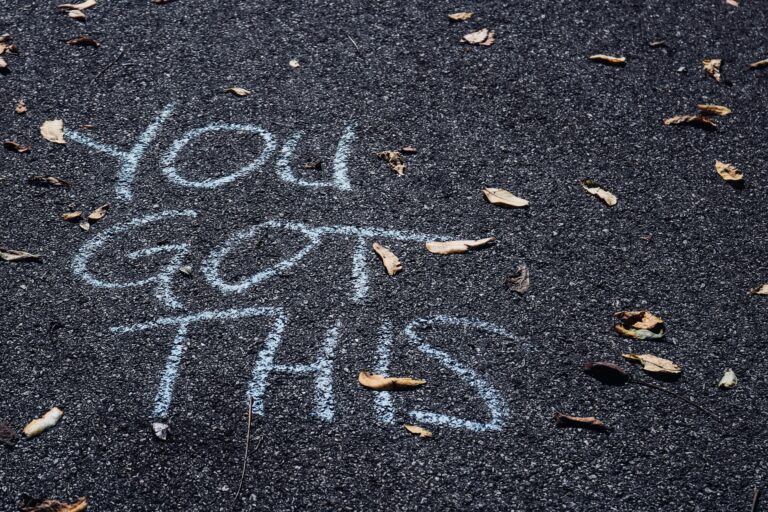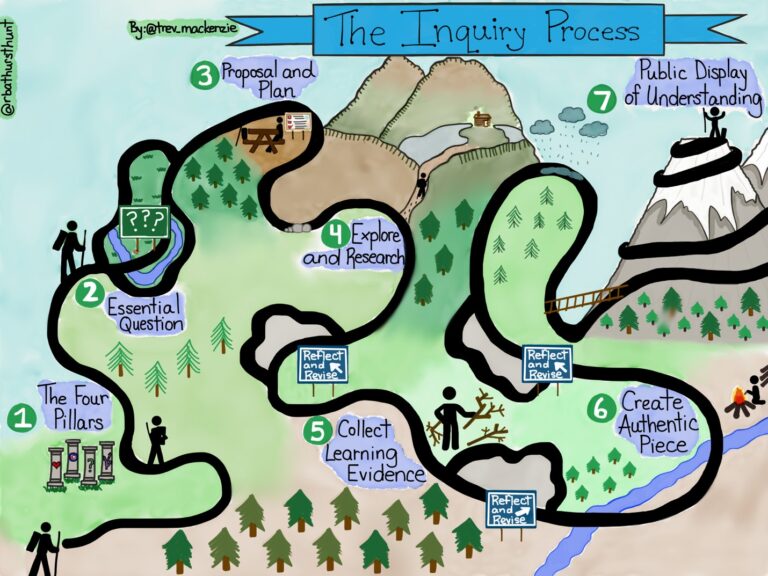Faculty Spotlight: Alena Buis
by: Gina Buchanan
I am delighted to feature Alena Buis for our faculty profile series in our monthly newsletter. I had the opportunity to chat with Alena earlier this month and I am excited to share her story with you.
“September 4, 2019. I arrived this morning for the first day of classes and parked my car. Looking ahead out my front window, I was reminded of another first day. This one, eighteen years ago.
Eighteen years ago, this very same day, I drove into this same parking lot, pulled into the same parking spot, the very same spot, and looked out the window of my car seeing the same green leafy tree I saw this morning. Eighteen years ago.
But on that day. I was a young woman arriving at KPU for my first day of classes. I did not know anyone. I did not know anything. I was so afraid.
I sat in the seat of my family’s battered dodge ram van and cried.
And today I am here, a faculty in the very same place where I began as a student more than eighteen years ago today.”
Alena’s roles
Alena teaches in the Fine Arts Department in the Faculty of Arts. Alena has been teaching at KPU since 2015 as a sessional faculty and this term is contracted to teach ARTH1120: Art and Visual Culture, Prehistory to Early Renaissance.
In addition to her role as sessional faculty at KPU, Alena also serves as the Department Chair, Art History and Religious Studies, at Langara College.
A little bit about Alena …
Unlike all of her friends who had chosen to attend either UBC or SFU, spending hours a day commuting, wandering across campuses into large lectures theatres and learning from professors who did not know them, Alena fondly recalled her experience of driving a few minutes from her family home to campus, learning in relatively small classes from professors whose name she knew and who knew her.
Although Alena had begun university believing she would pursue a business degree of one kind or another, her studies would take an unexpected departure. Inspired by the faculty she encountered and the teaching she enjoyed Alena fell in love with Art History eventually graduating after two years of study with a Fine Arts Diploma.
Alena was just beginning. In the ensuing years she continued to pursue what had become a passion earning a Bachelor of Fine Arts degree with distinction, Major Art History (Concordia) a Master of Canadian Art History (Concordia) and a Doctor of Philosophy in Art History (Queens).
Alena has been the recipient of numerous honors, awards and scholarships including a 2008 SSHRC Canadian Graduate Scholarship ($105,000) the 2011 Alfred Bader Travel Scholarship – The Netherlands ($30,000), and a 2012 Winterthur Museum Dissertation Fellowship ($7000 USD) to name but a few. Just this month, she was selected to receive a 2019-2020 OER Research Fellowship from Brigham Young University to research on the impact of open educational resources on the Cost of education, student success Outcomes, patterns of Usage of OER, and Perceptions of OER. Congratulations Alena!
Her research in open pedagogy will serve only to supplement an already extensive and impressive list of publications in addition to conference presentations and I invite you to view a list of her contributions to her field https://alenabuis.wordpress.com/curriculum-vitae/
The journey from student to teacher
Although Alena did not begin her first day at KPU intending to be a teacher, she confided she recalled thinking that very thought as she left campus for the last time as a student wondering, “it would be so cool to return here. To teach here would be a dream come true.”
She recalled fondly and appreciably of the profound influence of two of her professors during her student days, both of whom became her mentors and one, eighteen years later her colleague at KPU!
Alena credits both Rebecca Fairburn (retired) and Dana Cserepes, current chair of the Fine Arts Department with introducing her to Art History and to igniting a passion that has not waned in the ensuing eighteen years. She spoke of her immense gratitude for having had the opportunity to learn from these two instructors and of how profoundly they have influenced her life’s work. She spoke appreciatively of the passion and enthusiasm of each of the educators and her recollection of the many stories and pictures they shared of their own encounters with the objects and ideas of which they were teaching.
Talking with Alena served as a powerful reminder of our potential influence as educators. Be it intentional or unintentional who we are as educators and how we choose to engage with our students can have significant impacts the consequences of which can and do extend beyond the classroom. In the busyness of it all, to do everything that is asked of faculty and that we ask of ourselves, it can be easy to lose sight of the possibility and power inherent in our choice to teach. I am also reminded of how meaningful it can be for students to learn from and with us. To allow them to know how it is that we came to know.
You have authored some interesting changes to your course, what are they?
I teach ARTH 1120, Art and Visual Culture: Prehistoric to Early Renaissance. I have adapted it to be a ZED CRED course with zero textbook costs to students!
When I asked Alena for what inspired her to shift to open educational resources she spoke of teaching another first year course and coming into awareness of the consequences for students, and their learning, of the required text. “The text the students were required to purchase was a costly massive tome. It was cumbersome. It was hard to use in class. It did not allow for agile learning.” So, I decided to change the requirements.
Khan Academy has partnered with Smarthistory a free resource for the study of art history created by Beth Harris and Steven Zucker. An independent not-for-profit organization Smarthistory provides over 1500 essays, videos, images, and links to additional resources on the art and cultural history of the Paleolithic era to the 21st century. The videos allow for me to “flip” the classroom to allow for more small group projects, and other student engagement techniques that promote active learning.
I have become very interested not only in open education resources but also, open pedagogy. For me it has become important to consider how power and privilege are enacted and knowledge constructed in the discipline. The Assumption Handout (Scrubbing your assumption about your students) distributed as part of the Intercultural Teaching Program “blew my mind!” There is so much unsaid, unnamed, unwritten in the discipline. I am knowing that more keenly now. I have also become interested in helping my students uncover and challenge their assumptions and mine too and in inviting them to be actors in not simply observers of the discipline. Challenging perhaps traditions associated with the discipline … who decides what is art, what is to be written about art and who writes. These are just a few of the many questions that have become important for me to engage my students with.
The newly developed proposal writing assignment I have created based upon Emily Clark’s 10 Proposals for a More Ethical Art History allows students not only to construct knowledge about the ethics of art history rather than relying on another’s construction but also create and share this knowledge in a written assignment or any one of several other formats. Options listed in the assignment as alternatives to a written assignment include a podcast or video, an infographic, art work or another (instructor approved) self-styled means of articulating the proposals.
The creativity in the construction of this assignment (assessed using a rubric included with the assignment information sheet is exciting! )
What do you most enjoy about teaching?
I love teaching! I love my students! I love the diversity of my students. One of my absolute favorite things is listening to the students’ experiences of attending an exhibition. It varies with each class but typically 60-75% of my first year students have never visited an exhibition – attended an art gallery or a museum. I introduce them to this experience!
How do you help yourself develop as an educator?
It is important to keep learning. Not only about my discipline, but about teaching and learning. I completed my PID (Provincial Instructor Diploma) while on maternity leave with my second daughter Tori and continue to participate in professional development opportunities – workshops, conferences etc. I am also part of a book club, meeting regularly with other educators to talk about teaching and learning. Our first read was The Slow Professor: Challenging the culture of Speed in the Academy. Although this group has changed since its inception I am so grateful for the mentorship and collegiality it has provided. One of my other favourite reads is Teaching Naked: How Moving Technology Out of Your College Classroom Will Improve Student Learning and I would also recommend Hacking the Academy by Daniel J. Cohen & Tom Scheinfeldt and Sexism Ed: Essays on Gender and Labour in Academia by Kelly J. Baker.
What are some words of wisdom or perhaps inspiration you wish to share with your colleagues:
Take risks! Try things! Be brave! I know it is hard when there is so little time, when we feel strapped for time. It is easier to do what I or you have always done. It has worked before. It will work again. It works. But there is so much value in trying something new, something different. And you have to be willing to fail. Because it is only when we take a risk to do something different that something different is also possible for our students.
If you would like to be featured in an upcoming newsletter or have a colleague you wish to see featured please contact tlcommons@kpu.ca



